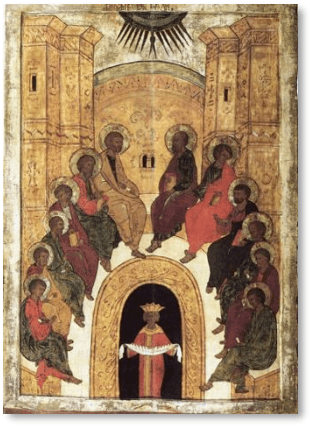Spiritual Gifts are Given to All

Like a body that has many members, organs, and limbs, each with a different function, so the local church has many members, each with a different function. St. Paul reminded the Corinthian church of this truth in his first letter to them, to draw them away from their notion that speaking in tongues was the only gift worth having, by saying that speaking in tongues was only one gift among many. There were other gifts too, and he ranks them in order of importance—their relative importance being based on how much they served the common good of the church.
Thus, Paul mentions the apostles as first in importance, followed by prophets1 as second in importance, followed thirdly by teachers (1 Cor 12:27–28). Then after these come healers, helpers (Greek antilempseis), administrators (Greek kuberneseis), and speakers in tongues (Note that the gift of glossolalia does not come last but shares the last place with healers, helpers, and administrators). By this listing, Paul tells his Corinthian converts that other gifts are far more important than that of speaking in tongues, with which they seemed to have been obsessed.
Paul mentions other gifts as well, such as words or messages of wisdom, words or messages of knowledge, miracle-working faith, the ability to discern spirits, and the interpretation of what is said in tongues (1 Cor 12:8–11). Each gift (Greek charisma) is necessary to the healthy functioning of gathered assembly just as all the contributions of the human body are necessary for its healthy functioning.
Elsewhere, Paul describes such functions in the Church as Christ’s gifts to His Church. In Ephesians 4:11, he mentions apostles, prophets, evangelists,2 shepherds and teachers. In Romans 12:4–8, he lists gifts of prophecy, service3 , teaching, exhortation/counselling, giving money, governing/presiding4 , and performing acts of mercy.
None of these lists were intended to be comprehensive. Paul’s point throughout is that Christ has poured out the gifts of the Spirit generously upon His Church, and each Christian has a gift from the Spirit and a function to fulfill. St. Peter makes the same point in 1 Peter 4:10 where he writes, “As each has received a charisma, employ it for one another as good stewards of God’s varied grace [charis].” Each Christian has his or her own gift to use for the common good of the assembly.
The binary distinction between the clergy and the laity, the so-called ecclesia docens and the ecclesia discens (the “teaching church” and the “learning church”) must here give place to a richer and more complex model. There is indeed a distinction between clergy and laity (see below), but this distinction was not the governing model in the apostolic church. All members of the church, the holy people of God, had a gift to share for the common good—for laity as well as clergy.
Footnotes
-
That is, New Testament prophets such as Agabus (see Acts 13:1, 21:10–11), not the prophets of the Old Testament ↩
-
Evangelist means a preacher of the ευαγγέλιον, evangelion, the Good News (compare Acts 21:8 to 2 Timothy 4:5). ↩
-
In Greek, διακονία/diakonia, which is the work of deacons. ↩
-
In Greek, προϊστάμενος/proistamenos, which is the work of bishops/presbyters. ↩